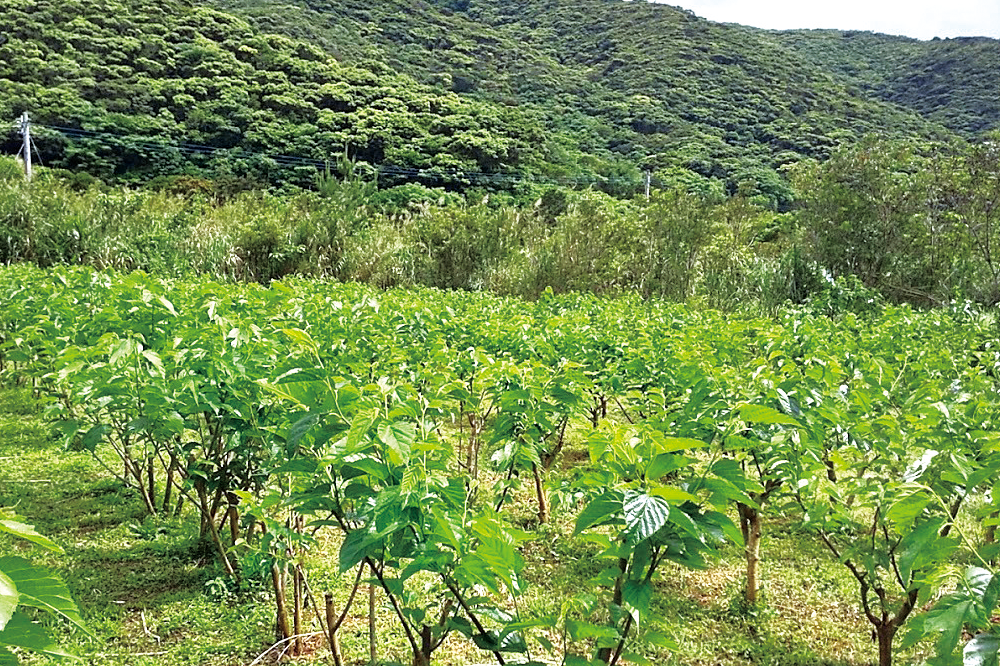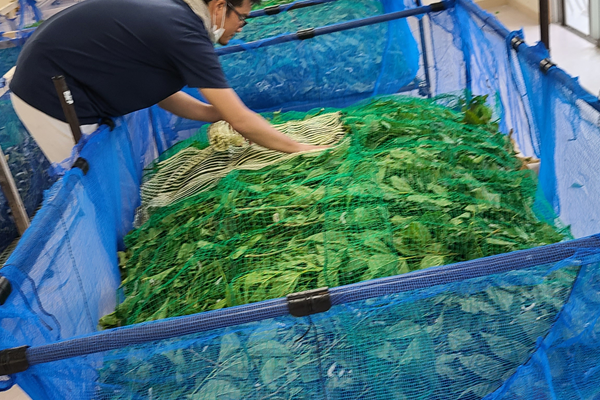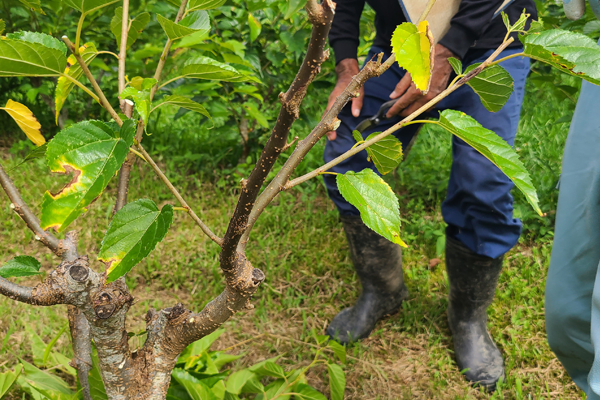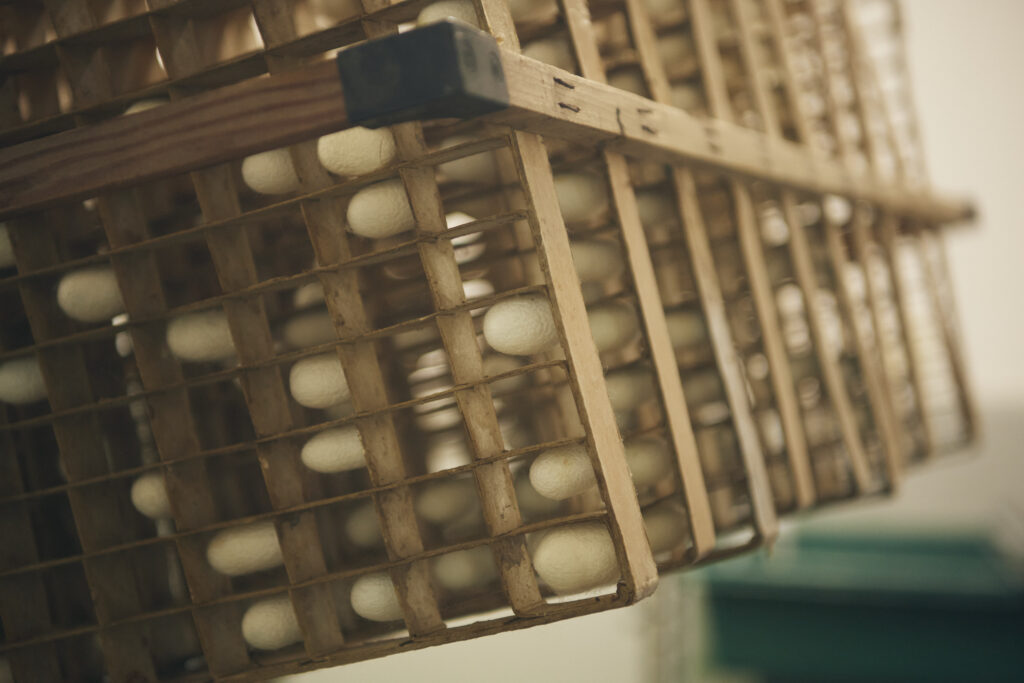Sericulture

“Sericulture” of the Adan Group is handled by Amami Sericulture Co., Ltd.
About Us
Company name: Amami Sericulture Co., Ltd.
Established 2011
Representative: Sumio Toshioka
Business Sericulture and research and breeding of silkworms with new functions
Contributing to the development of Japanese silk
Sericulture of Adan is handled by Amami Sericulture Co., Ltd.
Amami Sericulture Co., Ltd. starts with cultivating mulberry fields to feed silkworms, and grows “shimaguwa,” a type of mulberry unique to the Nansei Islands.
The cocoons made by silkworms that feed on the nutrient-rich island mulberry are harvested, and the facility is capable of raising 1 million silkworms per year.
These cocoons are the raw material for Adan’s silk cosmetics and bedding (cocoon pillows, etc.).


Silkworms are raised on mulberry leaves and artificial feed (a mixture of mulberry leaf powder and other feed), and mulberry leaves are raised from spring to fall when the mulberry leaves are vigorous, while artificial feed is raised year-round to achieve sericulture with no difference in cocoon quality.
We are also engaged in research sericulture and raise silkworms in a sericultural room with measures to prevent the spread of TG (transgenic) silkworms, as stipulated in the Cartagena Act for Type 2 Use, etc.
The purpose of the Cartagena Act is to prevent adverse effects on biodiversity through the implementation of regulatory measures for the use of genetically modified organisms.
Cocoons produced by TG silkworms are currently being used for research purposes, but the use of cocoons as a raw material for silk with new functions is being considered.
The sericulture industry in Japan continues to decline, and we will contribute to the development of Japanese silk together with people involved in sericulture throughout Japan.
